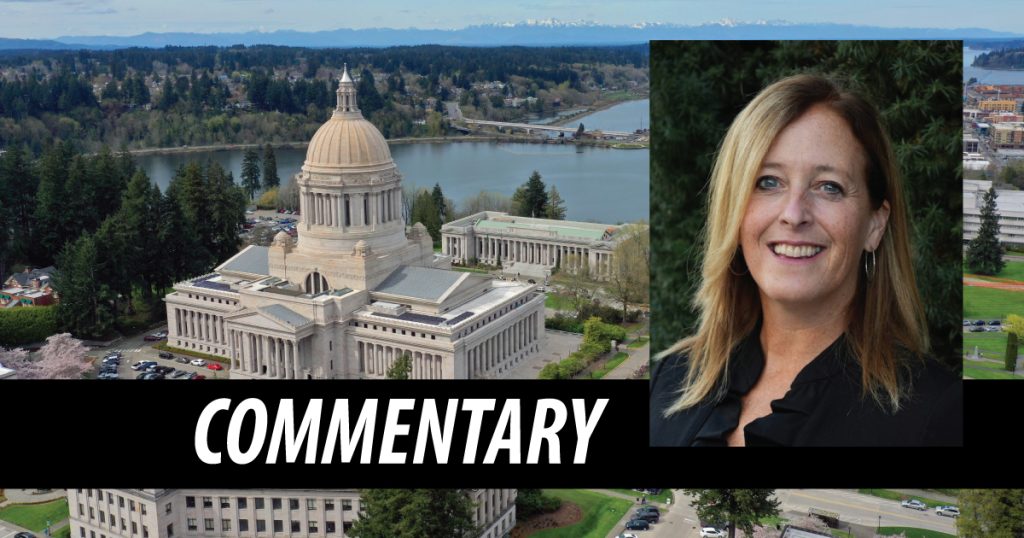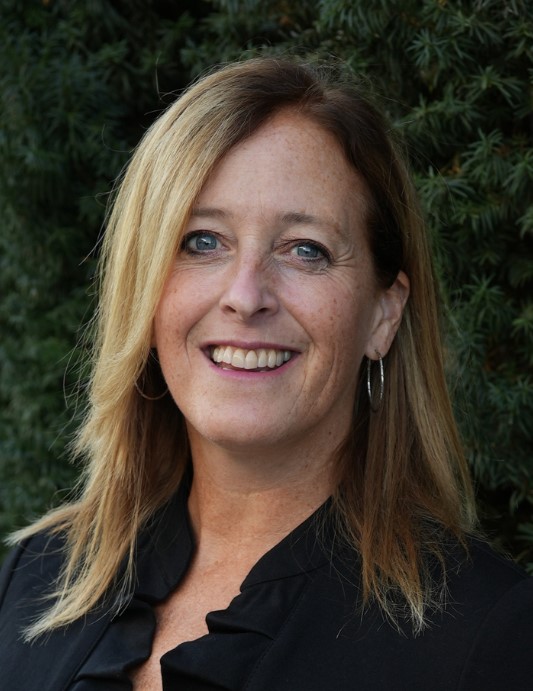The mood heading into Washington state’s 2025 legislative session January 13 is not exactly hopeful. According to the Cascade PBS/Elway poll, a majority of voters feel the state is headed in the wrong direction. Many Democrats and Republicans agree that the outlook for the state is bleak, with more than half of those surveyed saying things are getting worse, with high taxes, budget shortfalls and the rising cost of living driving their concerns.

Voters want their pocketbooks prioritized. The poll found that 66% of respondents preferred cutting government spending to address the state’s budget deficit rather than raising taxes. It’s a clear message to lawmakers: Stop asking taxpayers for more money and start allocating the funds you already have more efficiently.
Many leading Democrats, including outgoing Gov. Jay Inslee, erroneously believe they’ve received a different, clear message. They have cited the failure of three tax-halting initiatives on the November ballot as proof that Washingtonians are open to more government largesse and increased taxes.
Gov. Jay Inslee said in a recent legislative preview on TVW that taxpayers are OK with taxes — as long as they hit the rich. That’s not exactly right. In the Cascade PBS Elway poll, respondents said that if the state does raise taxes, 57% of voters would prefer taxes on the wealthy, compared to 29% who said they prefer taxes on everyone, 3% who support taxes on businesses and 11% with no opinion.
But again, 66% of Elway poll respondents said they preferred that the state cut existing programs and services rather than increase taxes. Only 25% said legislators should raise taxes to avoid cuts and 9% had no opinion.
Inslee was asked by a member of the media, “How do you define wealthy? Is it assets, revenue?” He mentioned critics’ concern that the “wealthy” label will start dropping down and more people will be taxed. He’s right. There are already discussions about widening the applicability of taxes that hit upper-income people.
Inslee gave a non-answer to the “what is wealthy” question. He ended up describing wealthy as people with large families and good partners. Sigh. He also did not say that taxes on the wealthy won’t reach down to people most of us don’t consider wealthy.
Most disappointing to me, Inslee said the state needs more progressive taxes and that workers should be spared. That comment is ridiculous. State lawmakers have refused to offer broad-based tax relief, even in times of budget surplus. A bill to provide a sales tax reduction of 1 percent, Senate Bill 5932, proposed by the Senate Democratic Majority Caucus Vice Chair Mona Das in 2022, didn’t even receive a hearing.
And we are a state in which lawmakers like to penalize workers. Inslee and most Democrats celebrate and support the state’s five-year old Paid Family and Medical Leave program and the even newer WA Cares Fund: Both of these will have low-income wage earners financing the needs of workers who do not require taxpayer dependency, with higher wages and more resources, at the expense of their own needs. (Read more in a column I wrote for The Spokesman Review, titled, “State celebrates program that harms low-income workers.”)
Budget cuts, not tax hikes
Governor-elect Bob Ferguson did not seem as callous to the needs of taxpayers to find a way to make their budgets work and live within their means while Washington hasn’t. Ferguson said it was important to understand how the state got to the level of budget deficit we’re experiencing. (He should already know that the state has a spending problem.)
Ferguson did sing my tune when he explained that when families face a budget shortfall, they cut spending and prioritize essentials. Ferguson suggested a 6% across-the-board cut to state agencies, saying, “Our government can be far more efficient.” That’s encouraging to hear, but I remain cautiously optimistic. It’s one thing to talk about scrubbing the budget for efficiencies; it’s another to actually do it. I hope Ferguson is serious about shifting state spending toward core services and away from unnecessary projects and bureaucratic bloat.
Cascade PBS followed up with some poll participants to learn more about their answers. Tracy Gibbs, a 63-year-old Union resident and Democrat, said what a lot of us think: “I just haven’t heard any solutions being discussed other than raising taxes,” she said. “I don’t think you can tax your way out of the problems we have.” Ferguson echoed that sentiment and expressed skepticism of the wealth tax proposed by Inslee. (Reminder: Ferguson was a proponent of the state’s capital gains tax.)
Dennis Humbard, a 79-year-old Kent resident and Independent voter, put it bluntly, “It’s all about taxes, it’s about money, it’s all about greed.” Humbard, like many on fixed incomes, is already struggling with rising costs.
The government needs to look for efficiencies before asking for more money. I hope Ferguson is as committed to budget slicing and reprioritizing as he suggested recently. Washington Policy Center has ideas for cuts, as do various lawmakers.
Elizabeth New (Hovde), Policy Analyst and Director of the Centers for Health Care and Worker Rights, Washington Policy Institute

Elizabeth New (Hovde) grew up in Seattle’s Ballard neighborhood and graduated with a Bachelor of Arts degree in journalism and political science from Western Washington University. That’s where her newspaper career began, writing political opinion columns for The Bellingham Herald.
After graduation, Elizabeth became the communications director for the Washington Family Council, crafting legislative testimony, press releases and articles for various council publications. She was recruited away by The Columbian newspaper in Southwest Washington and spent the next decade as an editorial board member and columnist, winning several Society of Professional Journalists awards. Elizabeth enjoyed another 10 years as a political columnist for The Oregonian.
Elizabeth also has taught journalism, as an adjunct professor at Washington State University Vancouver.
Over the years, her volunteerism has included prison outreach, helping in public schools, writing for her neighborhood association and participating in area cleanups. She lives in Vancouver, Washington.
Author: Lynnwood Times Contributor













One Response
We here in Washington State are living in rich times.
While the state legislature is in session, we are seeing bills by lawmakers to increasingly micromanage Washingtonians lives while ignoring the real issues that show the Democrats have been and are willing to continue mismanaging our state.
This session is finding efforts to control our lives in the areas of how much housing providers can increase rent but allowing property tax increases to triple; when parents have a right to know that their children have been attacked and threats have been made against them to eliminating all rights to have an opinion on whether vaccines are necessary; regulating self check-out stands to making the homeless a protected class; making it less and less affordable to exorcise second amendment rights and whether they will allow us to burn wood in our woodburning stoves.
Our state is $12 billion in budget deficit, our roads and bridges are a mess and our children are not being educated at a high enough level to prepare them for high paying future employment? When will the good people of Washington State wake up?
Well, I suspect that is the crux of the matter: provide enough chaos and confusion to avoid being held responsible for what’s really going on.
Maybe common sense voters will learn their lesson and discover what the Democrats really stand for – or don’t stand for.
Jeff Scherrer,
Former Vice Chair Snohomish County Republican Party (2015)
Republican House Candidate, Legislative District 21 (2014 and 2016)